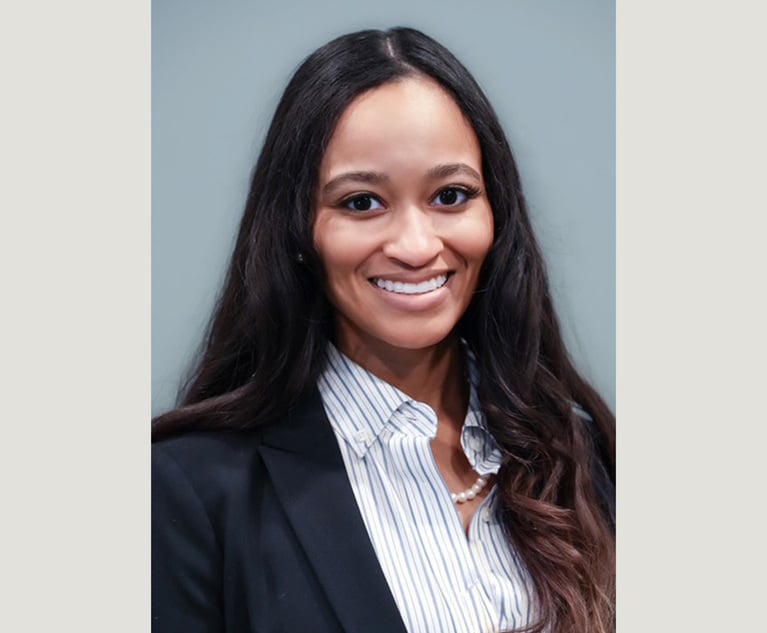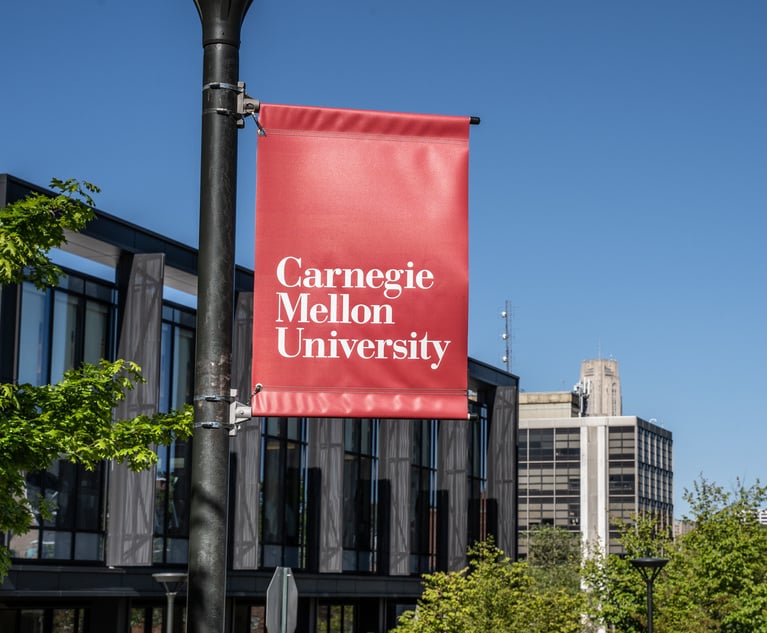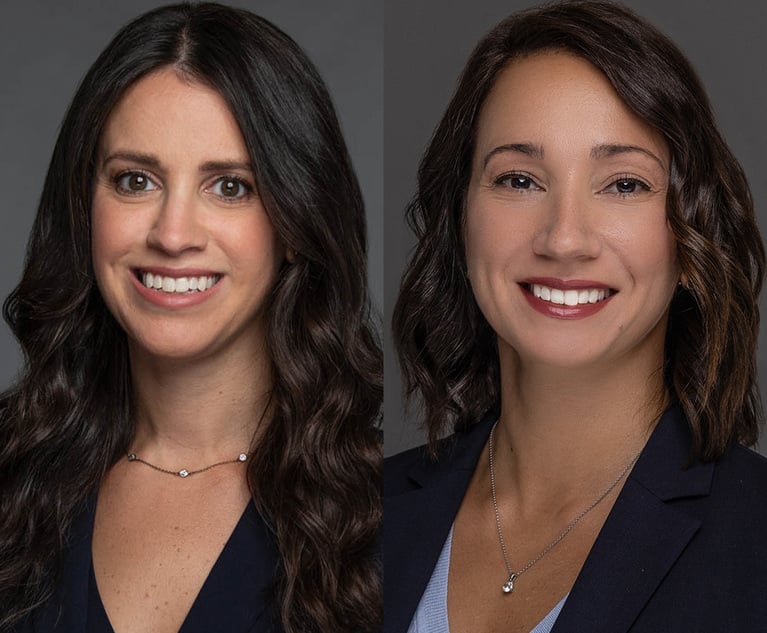 Photo: Shutterstock
Photo: ShutterstockInjury Lawsuit Against Valley Forge Military Kicked Back to State Court
John Doe sued the academy for traumatic physical and psychological injuries he allegedly sustained while there.
July 16, 2019 at 05:38 PM
4 minute read
A federal judge in Pennsylvania has ruled that a personal injury lawsuit against Valley Forge Military Academy was improperly transferred out of state court and must be remanded.
U.S. District Judge Michael Baylson of the Eastern District of Pennsylvania granted plaintiff John Doe's request to remand the case to the Philadelphia Court of Common Pleas. Doe sued the academy for traumatic physical and psychological injuries he allegedly sustained while there.
The complaint alleged four counts, including negligence; negligent and intentional infliction of emotional distress; negligent failure to rescue; and negligence per se for failure to report suspected child abuse in violation of the Pennsylvania Child Protective Services Law, according to Baylson's opinion.
Doe argued that the academy's subsequent removal of the case to federal court was improper because the notice of removal lacked a concise argument for its basis; that the defendant rule in 28 U.S.C. Section 1441(b)(2) precludes removal; and that the court lacks federal question jurisdiction over this case because of the state law claims it involves.
Valley Forge responded to Doe's points, arguing that removal to federal court was proper under the defendant rule because it was not properly served. The academy also claimed that while no federal question was presented, the court maintains jurisdiction on the basis of diversity of citizenship.
The question centered on whether sending a copy of the notice of removal to the plaintiff actually effectuated the removal itself, according to Baylson, and alternatively, whether filing a notice or removal in federal court effectuated the removal.
“If, as VFMAC claims, sending a copy of the notice to the Court of Common Pleas via facsimile on April 22, 2019 'effect[ed] the removal,' there would have been no reason for VFMAC to subsequently file a copy of the notice with the Court of Common Pleas on May 10, 2019,” Baylson said.
Turning to the second component of Valley Forge's argument, Baylson looked to the Third Circuit's 2018 ruling in Encompass Insurance v. Stone Mansion Restaurant. In that case, the Third Circuit held the defendant rule “precludes removal on the basis of in-state citizenship only when the defendant has been properly joined and served.”
Valley Forge also argued that removal is proper as long as an in-state defendant files a notice of removal with the district court before it is served, according to Baylson.
However, Baylson said that the Third Circuit's ruling was more limited than the academy made it out to be, and did not address how to interpret the forum defendant rule under Section 1446(d).
“To the court's knowledge, the only district court to have addressed the intersection of Section 1446(d) and the forum defendant rule after Encompass followed the same approach,” Baylson said, referring to Hardman v. Bristol-Myers Squibb in the Southern District of New York.
“Here, it is undisputed that VFMAC filed the notice of removal in this court on April 19, 2019; that plaintiff served VFMAC with the complaint in accordance with state law on May 1, 2019; and that VFMAC filed a copy of the notice of removal with the Court of Common Pleas on May 10, 2019,” Baylson said. “Because VFMAC was 'properly joined and served' before VFMAC completed all three steps necessary to effect removal under Section 1446(d), the court concludes that the forum defendant rule precludes removal on the basis of diversity jurisdiction. As the court rests its decision on the forum defendant rule, the court does [not] reach any conclusions as to plaintiff's additional challenges to removal.”
Brian D. Kent of Laffey, Bucci & Kent represents Doe and did not respond to a request for comment. Nor did the academy's attorney, George B. Randolph of Riley Riper Hollin & Colagreco.
This content has been archived. It is available through our partners, LexisNexis® and Bloomberg Law.
To view this content, please continue to their sites.
Not a Lexis Subscriber?
Subscribe Now
Not a Bloomberg Law Subscriber?
Subscribe Now
NOT FOR REPRINT
© 2024 ALM Global, LLC, All Rights Reserved. Request academic re-use from www.copyright.com. All other uses, submit a request to [email protected]. For more information visit Asset & Logo Licensing.
You Might Like
View All


Disjunctive 'Severe or Pervasive' Standard Applies to Discrimination Claims Against University, Judge Rules
5 minute read
Trending Stories
- 1Call for Nominations: Elite Trial Lawyers 2025
- 2Senate Judiciary Dems Release Report on Supreme Court Ethics
- 3Senate Confirms Last 2 of Biden's California Judicial Nominees
- 4Morrison & Foerster Doles Out Year-End and Special Bonuses, Raises Base Compensation for Associates
- 5Tom Girardi to Surrender to Federal Authorities on Jan. 7
Who Got The Work
Michael G. Bongiorno, Andrew Scott Dulberg and Elizabeth E. Driscoll from Wilmer Cutler Pickering Hale and Dorr have stepped in to represent Symbotic Inc., an A.I.-enabled technology platform that focuses on increasing supply chain efficiency, and other defendants in a pending shareholder derivative lawsuit. The case, filed Oct. 2 in Massachusetts District Court by the Brown Law Firm on behalf of Stephen Austen, accuses certain officers and directors of misleading investors in regard to Symbotic's potential for margin growth by failing to disclose that the company was not equipped to timely deploy its systems or manage expenses through project delays. The case, assigned to U.S. District Judge Nathaniel M. Gorton, is 1:24-cv-12522, Austen v. Cohen et al.
Who Got The Work
Edmund Polubinski and Marie Killmond of Davis Polk & Wardwell have entered appearances for data platform software development company MongoDB and other defendants in a pending shareholder derivative lawsuit. The action, filed Oct. 7 in New York Southern District Court by the Brown Law Firm, accuses the company's directors and/or officers of falsely expressing confidence in the company’s restructuring of its sales incentive plan and downplaying the severity of decreases in its upfront commitments. The case is 1:24-cv-07594, Roy v. Ittycheria et al.
Who Got The Work
Amy O. Bruchs and Kurt F. Ellison of Michael Best & Friedrich have entered appearances for Epic Systems Corp. in a pending employment discrimination lawsuit. The suit was filed Sept. 7 in Wisconsin Western District Court by Levine Eisberner LLC and Siri & Glimstad on behalf of a project manager who claims that he was wrongfully terminated after applying for a religious exemption to the defendant's COVID-19 vaccine mandate. The case, assigned to U.S. Magistrate Judge Anita Marie Boor, is 3:24-cv-00630, Secker, Nathan v. Epic Systems Corporation.
Who Got The Work
David X. Sullivan, Thomas J. Finn and Gregory A. Hall from McCarter & English have entered appearances for Sunrun Installation Services in a pending civil rights lawsuit. The complaint was filed Sept. 4 in Connecticut District Court by attorney Robert M. Berke on behalf of former employee George Edward Steins, who was arrested and charged with employing an unregistered home improvement salesperson. The complaint alleges that had Sunrun informed the Connecticut Department of Consumer Protection that the plaintiff's employment had ended in 2017 and that he no longer held Sunrun's home improvement contractor license, he would not have been hit with charges, which were dismissed in May 2024. The case, assigned to U.S. District Judge Jeffrey A. Meyer, is 3:24-cv-01423, Steins v. Sunrun, Inc. et al.
Who Got The Work
Greenberg Traurig shareholder Joshua L. Raskin has entered an appearance for boohoo.com UK Ltd. in a pending patent infringement lawsuit. The suit, filed Sept. 3 in Texas Eastern District Court by Rozier Hardt McDonough on behalf of Alto Dynamics, asserts five patents related to an online shopping platform. The case, assigned to U.S. District Judge Rodney Gilstrap, is 2:24-cv-00719, Alto Dynamics, LLC v. boohoo.com UK Limited.
Featured Firms
Law Offices of Gary Martin Hays & Associates, P.C.
(470) 294-1674
Law Offices of Mark E. Salomone
(857) 444-6468
Smith & Hassler
(713) 739-1250





